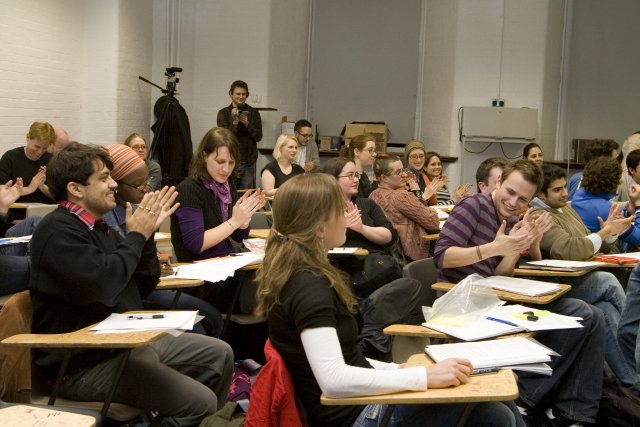
Yesterday the SP-ARK team ran a usability workshop in conjunction with The Screen School at Goldsmiths College, University of London (Visit). Using 6 different versions of the first page of Sally Potter’s ‘Orlando’ script from various stages of her adaptation process, we trialed an offline, paper version of our pathway concept.
Students who attended came from departments as diverse as Film, Media, Modern Literature, TV/Print Journalism, Sociology, Image and Communications, Computer Arts, Performance Making, Cultural Studies, Screen Studies, Screen Documentaries and Scriptwriting.
We will post a video of the workshop shortly.


The students were polled on various aspects of the workshop. When asked about SP-ARK 95% agreed that archival materials should be made accessible online, 80% said they thought it was important to interact with other users online and 95% said that social networking technologies are useful for education.
When asked about the workshop 80% said that they learnt about the creative process from the material presented and 75% said they learnt from interacting with other students’ ideas.


Photos by James Karinejad
View all Goldsmiths workshop photos on Flickr
Dr. Chris Berry, Professor of Film and Television Studies commented:
“How will the physical archive transform in the digital era? What is the next stage after the DVD in the proliferation of cinema? The SP-ARK vision of Social Learning gives us a glimmer of the future today. Instead of locking archive materials away and restricting availability, it promises ready access to anybody anywhere with a computer and the internet.
Furthermore, the solitary archive user is transformed into a producer and a member of a community by the ability to build pathways of connections and commentary through the material. In the process, the cinema is extended from a fixed object to be viewed into a dynamic, interactive, and growing network of digital debate and active learning.”

